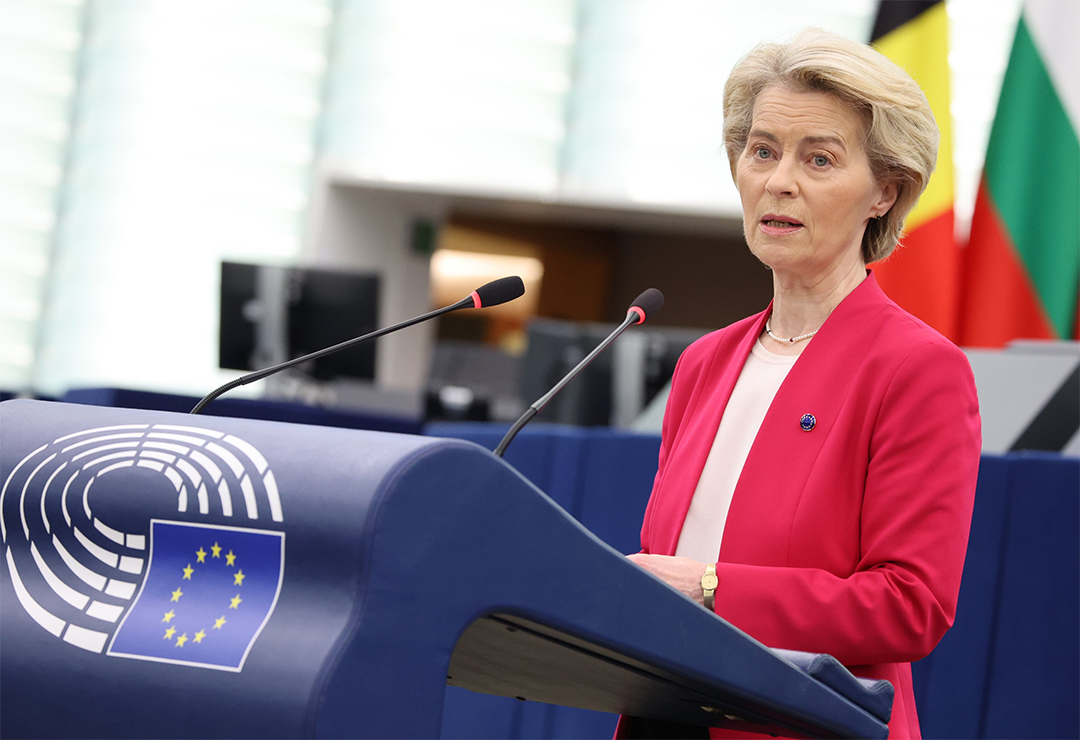“Democracy Shield” Launched in Brussels to Counter Hybrid Threats from Russia

Brussels has unveiled the European Democracy Shield and a new EU Strategy for Civil Society, aimed at strengthening democratic resilience and combating disinformation.
The Gaze reports on it, referring to European Pravda and a press release from the European Commission.
The European Commission has presented the European Democracy Shield, a set of measures to protect key elements of democracy in the EU: free people, fair elections, independent media, strong institutions, and an active civil society.
“The European Democracy Shield and the Strategy for Civil Society, approved by the European Commission, aim to combat hybrid threats and disinformation from Russia,” said European Commission Executive Vice-President Henn Virkkunen, presenting the initiative in Brussels.
The tool has three main areas of focus: protecting the EU's information space from disinformation, strengthening democratic institutions, and increasing the resilience of society through citizen participation.
Among the key innovations is the creation of a European Center for Democratic Resilience that will combine the expertise of member states to identify and respond to threats, including foreign information manipulation (FIMI) and disinformation. The center will also include a platform for dialogue with civil society, the media, academics, and fact-checkers.
To protect the information space, a European network of fact-checkers will be created in all official EU languages, and monitoring will be strengthened through the European Digital Media Observatory.
In order to support fair elections, it is planned to strengthen coordination through the European Network for Election Cooperation and to update the Digital Services Act toolkit.
Financial backing for journalists is provided through the new Media Resilience Program and measures to counter violence and legal persecution (SLAPPs).
Another area of focus is strengthening civic resilience.
“This means investing in media literacy, especially among young people, to teach them to recognize reliable sources and navigate the information environment,” Virkkunen emphasized.
The European Commission is going to develop media literacy and digital competence, promote citizen participation in democratic life through innovative online platforms, and create an EU Democracy Guide to raise awareness of citizens' rights.
Moreover, there are three key objectives proposed: boosting engagement through a new platform by 2026, protecting and supporting organizations through online hubs and access to funding, including €9 billion for the Agora EU program, and building links with private donors and pro bono legal communities.
Earlier, the European Parliament considered restricting access to Russian media on its IT systems as part of efforts to combat Russian propaganda and disinformation and to protect information security.
Latvian MEP Rihards Kols proposed blocking RT, Sputnik, VGTRK, ANO TV Novosti, and other Russian outlets on all Parliament devices and networks.
As The Gaze previously reported, the NATO Strategic Communications Center of Excellence (NATO StratCom COE) released a new study that reveals the fragmented but flexible system of Kremlin propaganda built around official media, television, and a network of pro-Russian Telegram channels.